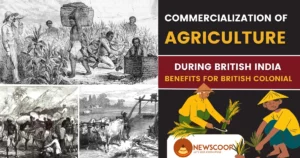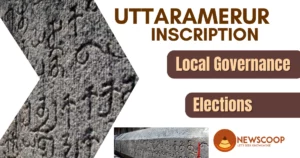Bammera Pothana, also known as Potana, was a prominent poet and scholar who lived during the 14th and 15th centuries. He was born in the village of Bammera in Palakurthy Mandal, located in the Jangaon District of present-day Telangana State, India.
Pothana is renowned for his significant contribution to Telugu literature, particularly for his translation of the Bhagavata Purana, one of the most revered Hindu scriptures. This article delves into the life, works, and impact of Bammera Pothana.
History of Bammera Pothana
Pothana was born around the year 1370, to Kesanna and Lakshmamma, in a Niyogi Brahmin family. His father, Kesanna, served as his first teacher, imparting knowledge and introducing him to the world of literature. Pothana’s inclination towards poetry and his natural talent as a poet earned him the title of “Sahaja Kavi” or a poet born with innate abilities. He furthered his education under the guidance of his teacher, Ivatuuri Somana, who blessed him with the power of composing poetry.
Pothana’s dedication to learning was evident in his extensive studies of various scriptures, including the Veda, Vedanta, Purana, Itihasa, Kavya, Nataka, and Alankara. He drew inspiration from renowned works such as the Mahabharatamu of Nannaya, Tikkana, and Errana, the Ramayanamu of Bhaskara, and the Basava Purana and Panditaaraadhya Charitra of Palkuriki Somanatha.
Also Read: Tikkana Somayaji
Literary Work of Bammera Pothana
- Bhogini Dandakamu: Pothana’s poetic journey began with the composition of “Bhogini Dandakamu,” a rhapsody written in praise of King Sri Singa Bhoopala’s concubine, Bhogini. This early work showcased the seeds of Pothana’s remarkable poetic talent and is considered the earliest available Dandaka (a type of poetic composition) in Telugu literature.
- Virabhadhra Vijayamu: Pothana wrote “Virabhadhra Vijayamu” during his boyhood days. This celebrated work consists of four chapters containing a total of 1,046 verses. It pays tribute to Lord Shiva, Lord Veerabhadra, Goddess Saraswati, and various Sanskrit and Telugu poets. Pothana also expresses gratitude to his teacher, Ivatuuri Somana, in this work.
- Narayana Satakamu: After completing “Veerabhadhra Vijayamu,” Pothana wrote “Narayana Satakamu,” a collection of 103 poems dedicated to Lord Vishnu. This work marks a turning point in Pothana’s faith, as he transitioned from being a devotee of Lord Shiva to becoming an ardent follower of Vaishnavism.
- Bhagawatamu (Pothana Bhagavatam): Pothana’s magnum opus is his renowned translation of the Bhagavata Purana into Telugu. Titled “Maha Bhagavatamu,” this work is more commonly known as “Pothana Bhagavatam.” Pothana himself translated the first four and the last seven skandhas (books) of the Bhagavata Purana, while other poets, such as Gangana, Singana, and Naraya, contributed to the remaining portions.
Legacy & Impact
Bammera Pothana’s contribution to Telugu literature and the preservation of Hindu scriptures is immeasurable. His works continue to be celebrated and revered to this day. “Pothana Bhagavatam” holds a special place in the hearts of Telugu-speaking people, who consider it a treasure trove of spiritual wisdom and guidance.
Pothana’s lyrical prowess, his ability to convey complex philosophical ideas through simple and relatable verses, and his devotion to Lord Vishnu have earned him a prominent place among Telugu poets. He is often hailed as the “Adi Kavi” or the “First Poet” in Telugu literature.
Numerous commentaries and interpretations of “Pothana Bhagavatam” have been written by scholars and devotees over the centuries, further amplifying its significance and ensuring its continued study and understanding. The work has been adapted into various art forms, including music, dance, and drama, adding to its cultural impact.
Pothana’s literary legacy extends beyond “Pothana Bhagavatam.” His other works, such as “Virabhadhra Vijayamu” and “Narayana Satakamu,” also exemplify his poetic genius and spiritual fervor.
In recognition of his immense contributions, several statues and memorials have been erected in honor of Bammera Pothana across Telangana and Andhra Pradesh. His birthplace, Bammera village, has been transformed into a cultural and educational center, further preserving his memory and promoting Telugu literature.
Conclusion
Bammera Pothana’s poetic brilliance and his translation of the Bhagavata Purana in the form of “Pothana Bhagavatam” have left an indelible mark on Telugu literature and religious discourse.
His works continue to inspire and enlighten generations of readers, reinforcing the values of devotion, righteousness, and spiritual wisdom. Bammera Pothana’s legacy as a poet, translator, and spiritual luminary remains cherished and revered in the hearts of people who appreciate the beauty of the Telugu language and literature.
Thank You!
Who was Bammera Pothana?
Bammera Pothana, also known as Potana (c. 1370–c. 1450), was a renowned poet and scholar from the Telugu-speaking region of India. He hailed from Bammera village, located in Palakurthy Mandal of Jangaon District in the present-day Telangana State
What are the literary works of Bammera Pothana?
Bammera Pothana wrote the famous Telugu work “Sri Madandhra Bhagavatham,” a translation of the Bhagavata Purana. His other notable works include “Andhra Maha Bhagavatamu,” “Panduranga Mahatyamu,” and “Chandrala Parameshwara Charitra.”





